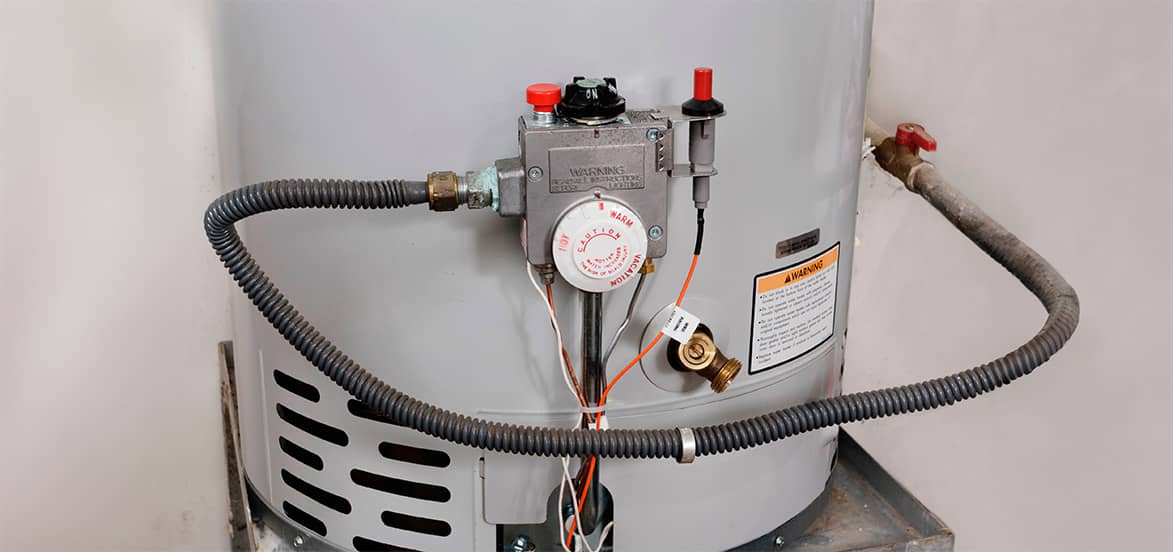How to Tell When It’s Time to Replace Your Water Heater
A water heater is an essential appliance that provides your household with a steady supply of hot water, used for showers, cleaning, and various other tasks. Whether powered by gas or electricity, it heats the water stored in a tank or heats water on demand in the case of tankless models. Like any major appliance, a water heater will experience wear and tear over time, and recognizing the signs of failure early can prevent unexpected breakdowns, water damage, and energy waste.
Why Detecting Warning Signs is Important
Water heaters often show signs of malfunction before they completely fail. Ignoring these signs can lead to inconvenient and costly consequences, such as flooding due to a leak, a lack of hot water, or skyrocketing energy bills from inefficient operation. By detecting issues early, you can take timely action to either repair or replace your unit, ensuring your home continues to run smoothly.
6 Signs You Need a Water Heater Replacement
1. Leaks Around the Tank
A leaking water heater is often the most obvious sign that something is wrong. Leaks can occur due to corrosion, pressure buildup, or a loose connection. If you see puddles of water around the base of your heater or notice rust and moisture, the tank itself may be compromised. While minor leaks from pipes or fittings can be repaired, a cracked tank typically requires a full replacement. Ignoring leaks can lead to water damage to your home and increased utility bills.
2. Unusual Sounds
Water heaters are generally quiet during operation. However, strange noises such as popping, banging, or cracking could indicate that sediment has built up inside the tank. As water is heated, the sediment gets trapped, causing water to boil underneath it, which leads to these noises. Over time, sediment buildup can reduce the efficiency of your water heater and damage the tank, shortening its lifespan. If your water heater continues to make these sounds, it may be time to consider replacing it.
3. Rusty or Discolored Water
If your hot water has taken on a rusty, murky, or brownish tint, this could be a sign of internal corrosion. Rust inside the tank can contaminate your water, which is not only unpleasant but can also signal that the tank is deteriorating from the inside out. Rusted components inside the tank will eventually lead to leaks and failure, meaning replacement is often the best solution.
4. Fluctuating Water Temperatures
Does your water constantly switch between cold and hot, or does the water temperature drop rapidly? These fluctuations could indicate a problem with the heating element, thermostat, or a failing water heater. An inconsistent hot water supply can be an inconvenience and could suggest that your water heater is no longer able to keep up with demand.
5. Insufficient Hot Water
One of the clearest signs of a failing water heater is a shortage of hot water. If your water heater is unable to produce enough hot water, or if the hot water runs out much faster than before, it might be struggling to maintain its heating capacity. Over time, parts wear out and performance diminishes. In some cases, your water heater might be too small for your household’s needs, but in most cases, this issue signals that the unit is nearing the end of its life.
6. Old Age
Age is a significant factor in determining whether your water heater needs to be replaced. Most traditional water heaters have a lifespan of 8 to 12 years, and tankless models can last up to 20 years with proper maintenance. However, as your unit approaches the end of its expected lifespan, it may become less efficient and more prone to breakdowns. If your water heater is more than 10 years old and showing signs of wear, it’s worth considering a replacement to avoid further issues.
When to Replace vs. When to Repair
Deciding whether to repair or replace your water heater depends on several factors. Here’s a guideline to help you decide:
- Age of the Water Heater: If your water heater is less than 10 years old, it may still have some useful life left, and repairs can be a cost-effective solution for minor issues. However, if it’s nearing or past the 10-year mark, investing in a replacement is usually a smarter choice since older models are less efficient and more prone to breakdowns.
- Cost of Repairs vs. Replacement: If the cost of repairs is more than half the price of a new water heater, replacement is usually the better option. Continuous repairs on an older unit will quickly add up, making replacement more economical in the long run.
- Efficiency and Performance: Even if your water heater can be repaired, it may no longer be operating efficiently. Older models consume more energy, resulting in higher utility bills. Upgrading to an energy-efficient model can reduce your energy consumption and offer long-term savings.
- Frequent Breakdowns: If your water heater requires frequent repairs or has multiple issues (such as leaks, inconsistent temperatures, and strange noises), it’s more cost-effective to replace it rather than constantly investing in repairs.
- Safety Concerns: A water heater with significant rust, corrosion, or a malfunctioning pressure relief valve can pose serious safety risks, including flooding or, in extreme cases, an explosion. If your unit shows any signs of these issues, replacement is the safer choice.
Recommended reading: Choosing the Right Water Heater Type: A Guide to Find Your Perfect Fit
Benefits of Upgrading to a New Energy-Efficient Water Heater
Replacing your old water heater with a new, energy-efficient model comes with several advantages, both financial and environmental:
1. Lower Energy Bills
Newer water heaters, especially those with Energy Star ratings, are designed to use less energy than older models. By consuming less electricity or gas, they reduce your monthly utility bills, offering long-term savings.
2. Improved Hot Water Supply
Modern water heaters are better equipped to meet your household’s hot water demands, providing a consistent and sufficient supply. Whether you opt for a traditional tank or a tankless water heater, newer models are designed to heat water more efficiently and distribute it evenly.
3. Better for the Environment
Energy-efficient water heaters use less fuel, reducing your home’s carbon footprint. Many newer models use environmentally friendly technology to heat water, which helps conserve energy and minimizes harmful emissions.
4. Advanced Features and Smart Technology
Many new water heaters come with advanced features such as Wi-Fi connectivity, digital controls, and smart sensors. These features allow you to monitor and control your water heater remotely, ensuring optimal efficiency and performance.
5. Reduced Maintenance Costs
Older water heaters often require frequent repairs and maintenance. Newer models are built with more durable materials, which means fewer breakdowns and lower maintenance costs over their lifetime.
FAQ
- How can I tell if my water heater needs to be replaced?
Look for signs such as leaks, strange noises, discolored water, inconsistent water temperatures, or a lack of hot water. Additionally, if your water heater is over 10 years old, it may be time to consider a replacement even if it’s still working. - What causes a water heater to fail?
Water heaters can fail due to various factors, including sediment buildup, corrosion, damaged heating elements, and wear and tear over time. Regular maintenance can help prevent some issues, but once the unit reaches its lifespan, replacement is often necessary. - How long does a water heater typically last?
The average lifespan of a traditional tank water heater is between 8 and 12 years, while tankless water heaters can last up to 20 years. Lifespan depends on factors like usage, water quality, and maintenance. - Is it better to repair or replace a malfunctioning water heater?
If your water heater is relatively new and the issue is minor, repairs may be a cost-effective solution. However, if the unit is nearing the end of its lifespan or requires frequent repairs, replacement is often the more economical option in the long run. - What are the advantages of a tankless water heater?
Tankless water heaters provide on-demand hot water without the need for a storage tank, offering energy savings and unlimited hot water. They are more energy-efficient than traditional tank models and take up less space, but they often come with higher upfront costs.
Investing in a new, energy-efficient water heater not only improves your comfort but also saves money on utility bills and reduces your environmental impact. Keep an eye out for these signs, and when the time comes, make the switch to a better-performing, longer-lasting model.
Related Posts




